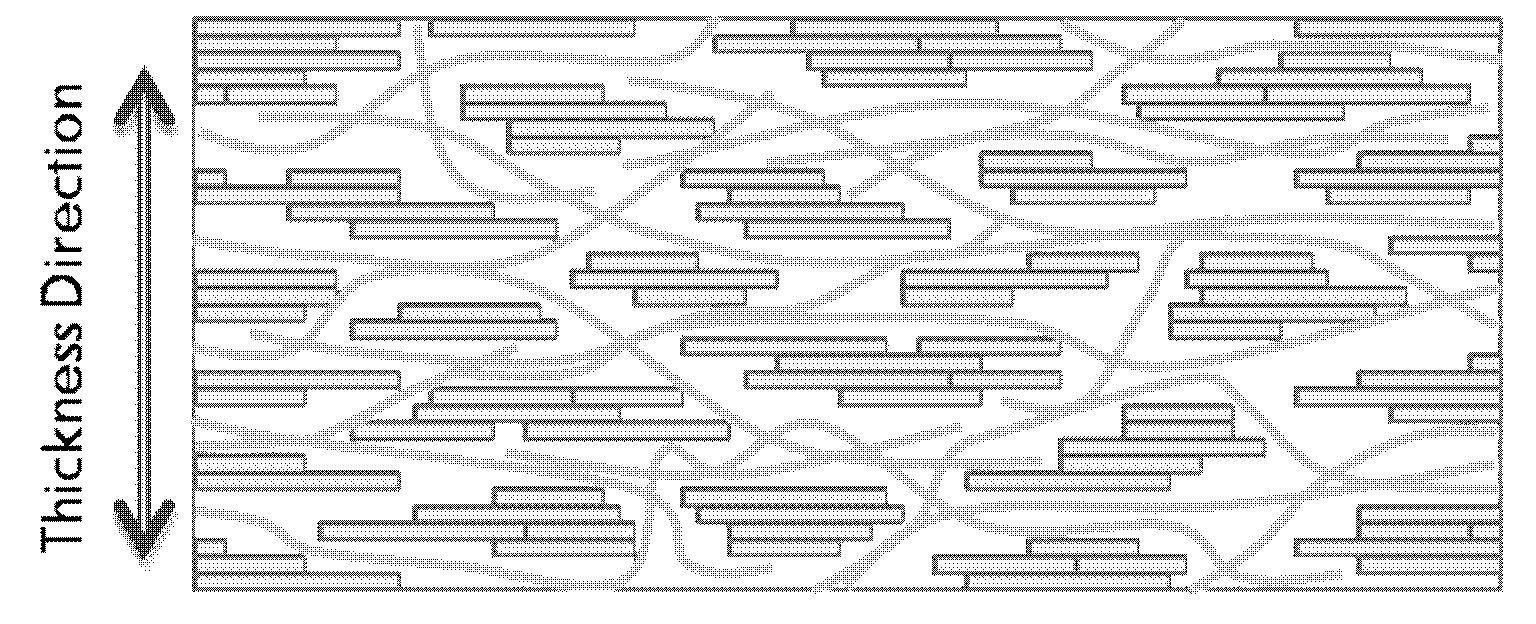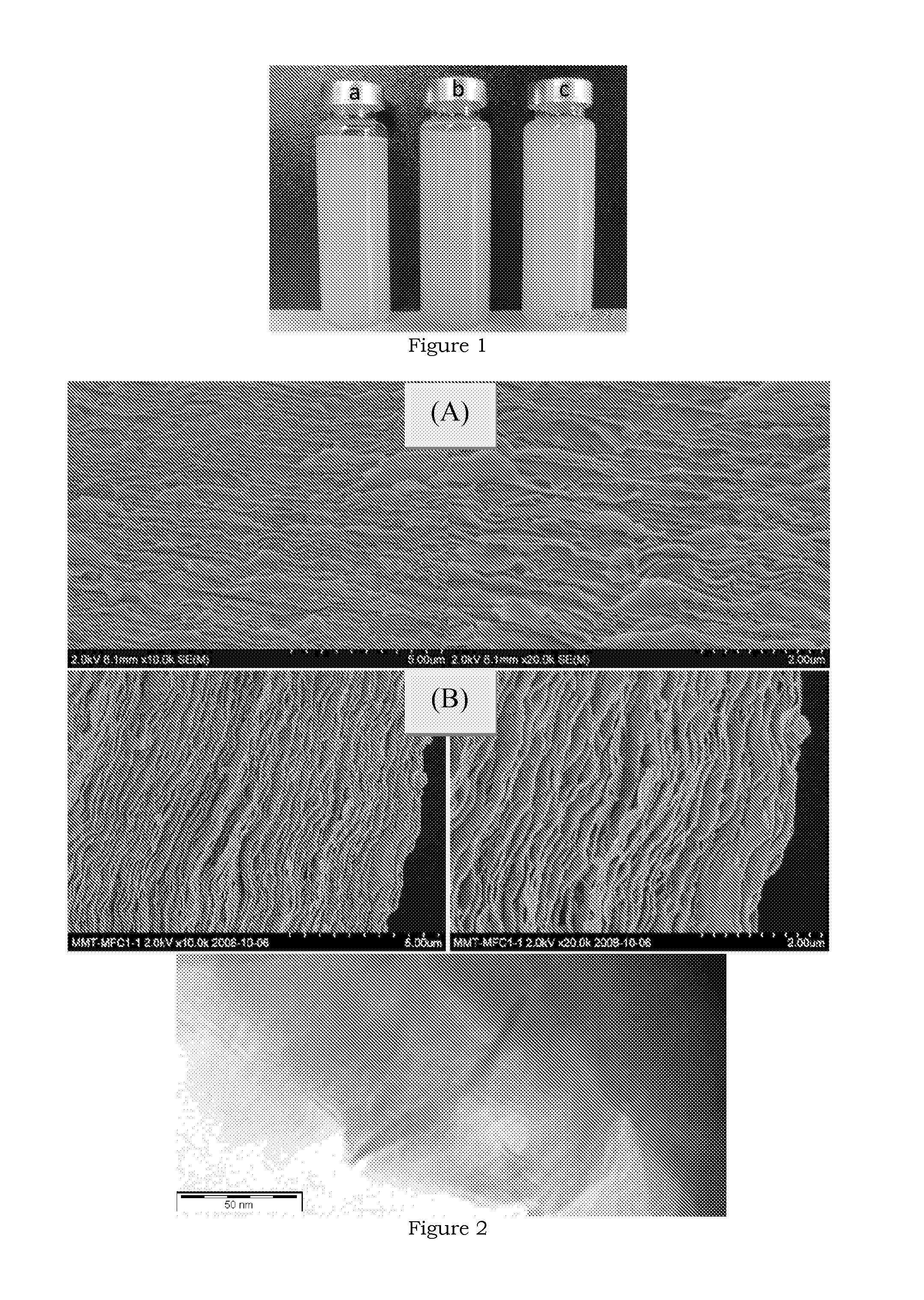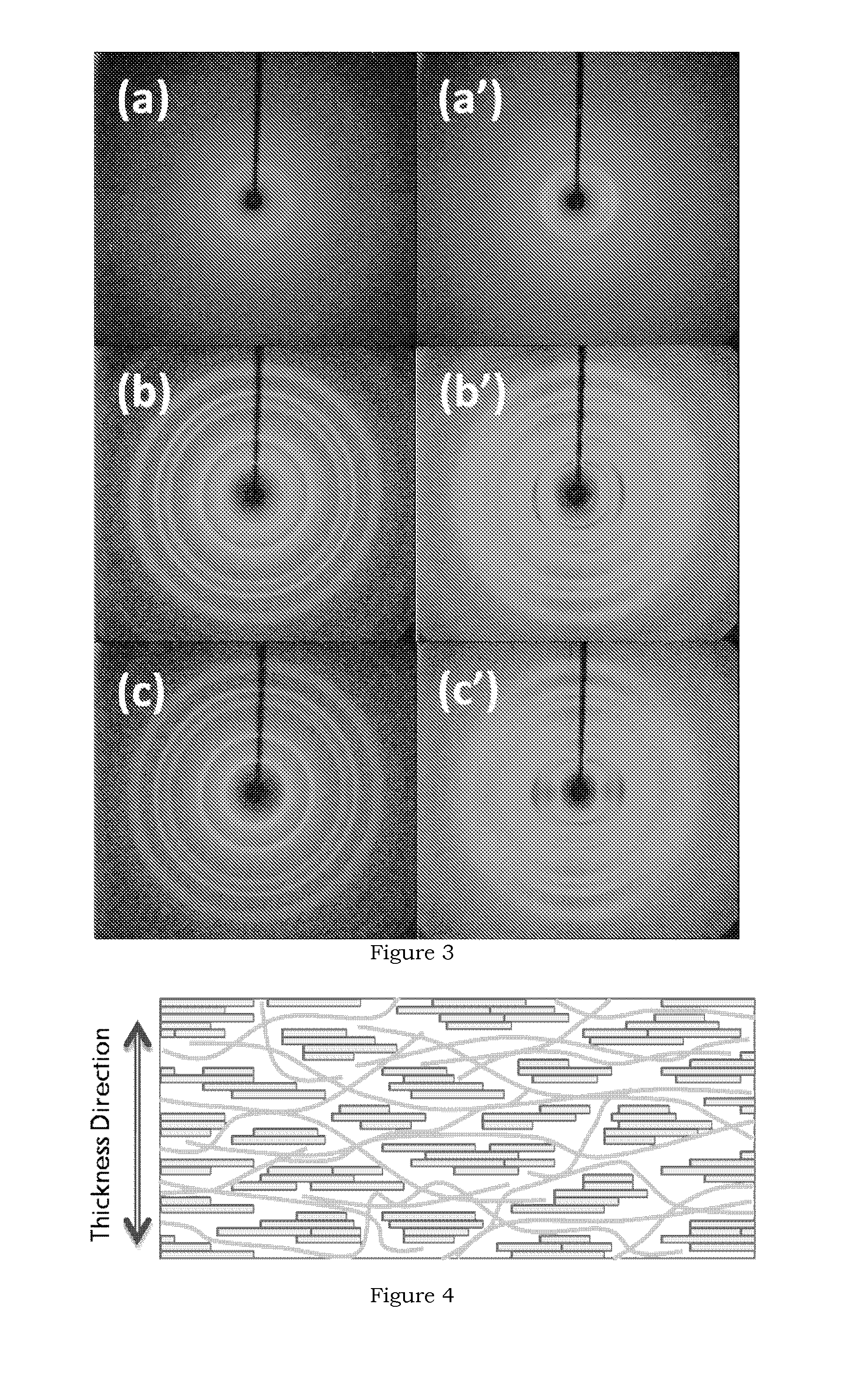Strong Nanopaper
a nanopaper and strong technology, applied in the field of strong nanopapers, can solve the problems of weak strength, affecting the further application of this kind of clay film, and requiring a really long assembly tim
- Summary
- Abstract
- Description
- Claims
- Application Information
AI Technical Summary
Benefits of technology
Problems solved by technology
Method used
Image
Examples
example 1
MFC / Clay Nanopaper
[0059]Materials
[0060]The clay used was a sodium montmorillonite (Na+-MMT)(Cloisite Nat, Southern Clay Products) with a cation-exchange capacity (CEC) of 92 meq / 100 g. The average size of the platelets was 110 nm as described by the manufacturer. A suspension of 1.0 wt % clay was prepared by dispersing 10 g of clay in 1L of de-ionized water under vigorous stirring before using.
[0061]Preparation of Microfibrillated Cellulose
[0062]MFC was obtained by a combination of enzymatic and homogenization processing of softwood dissolving pulp (7% hemicellulose) provided by Domsjo Fabriker AB, Sweden. The enzyme used was Novozym 476, manufactured by Novozymes A / S, Denmark. This enzyme is an endoglucanase expected to degrade the cellulose molecules by cutting the chains in the noncrystalline regions. The enzymatic treatment was carried out as follows. The pulp was first beaten 1000 revolutions in a PFI-mill, manufactured by HAM-JERN, Hamar, Norway, to make the cellulose more eas...
example 2
MFC / Clay-Chitosan Nanopaper
[0087]Materials
[0088]The clay was a sodium montmorillonite (Cloisite Na+, Southern Clay Products) with a cation-exchange capacity (CEC) of 92 meq / 100 g. The average size of the platelets was 110 nm as described by the manufacturer. MMT suspension (1.0 wt %) was prepared by dispersing 10 g of MMT in 1 L of de-ionized water under vigorous stirring before using.
[0089]MFC was prepared based on the work by Henriksson et al. Degree of polymerization (DP) was estimated to 480 from the average intrinsic viscosity after homogenization. Finally, MFC suspension with 1.63 wt % solid content was obtained, which was kept at 4° C.
[0090]Chitosan of high molecular weight (Mw=342500 g mol−1) containing an average number of glucosamine units of 2130 (glucosamine Mw=161 g mol−1) was supplied by Aldrich. Chitosan solutions, 0.5% (w / v), were prepared by the addition of corresponding amounts of the polysaccharide to 1% (v / v) acetic acid (Merck), and after the resulting solution ...
PUM
| Property | Measurement | Unit |
|---|---|---|
| Temperature | aaaaa | aaaaa |
| Thickness | aaaaa | aaaaa |
| Thickness | aaaaa | aaaaa |
Abstract
Description
Claims
Application Information
 Login to View More
Login to View More - R&D
- Intellectual Property
- Life Sciences
- Materials
- Tech Scout
- Unparalleled Data Quality
- Higher Quality Content
- 60% Fewer Hallucinations
Browse by: Latest US Patents, China's latest patents, Technical Efficacy Thesaurus, Application Domain, Technology Topic, Popular Technical Reports.
© 2025 PatSnap. All rights reserved.Legal|Privacy policy|Modern Slavery Act Transparency Statement|Sitemap|About US| Contact US: help@patsnap.com



